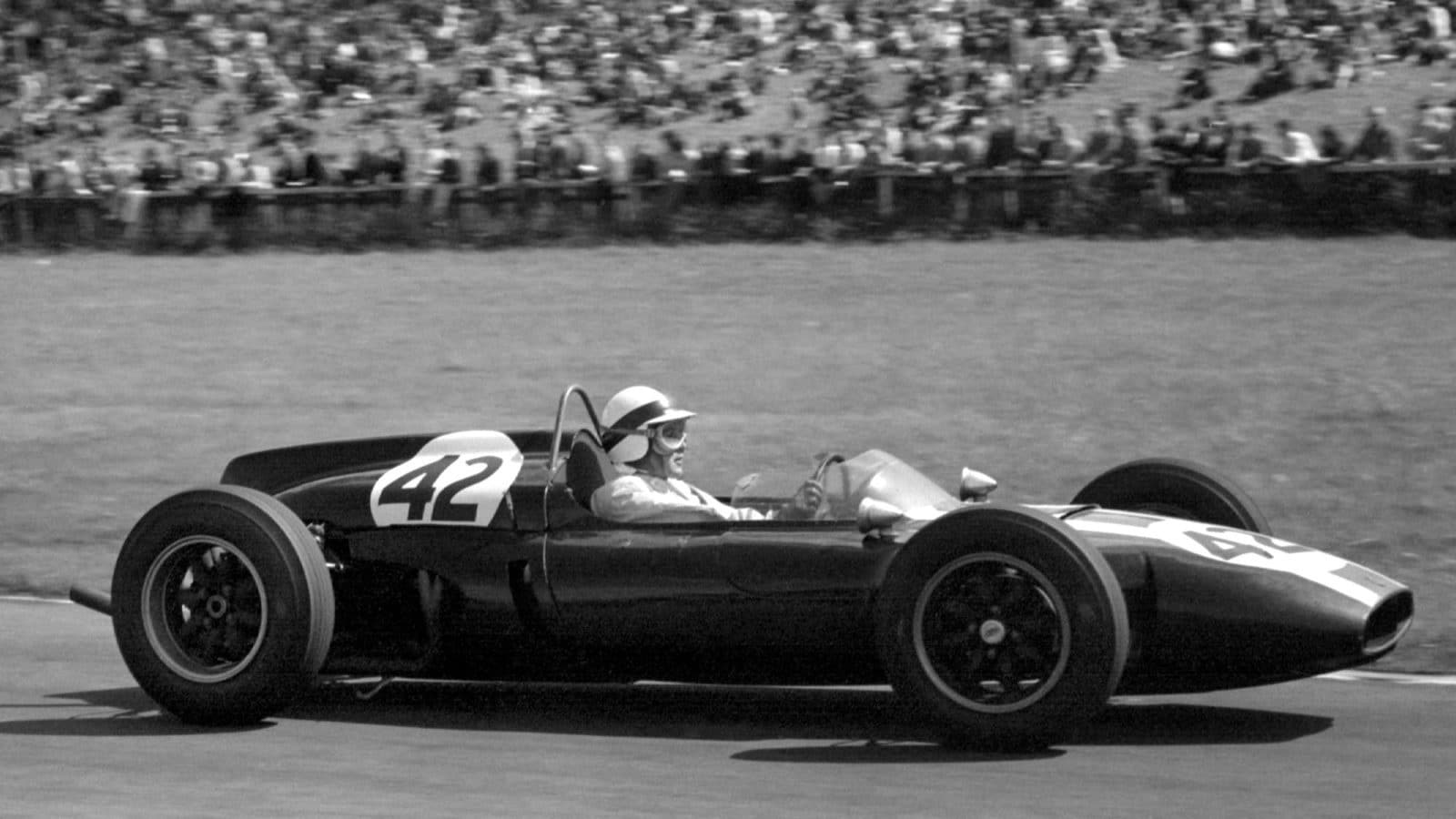“I wasn’t worried about hurting myself. I did, however, regularly ask, ‘What the hell am I doing here?’ That’s not good, especially when you’re doing 150mph in the pouring rain at the old Nürburgring.
“Yet, perversely, I always did better at circuits perceived to be dangerous. That was because I was confident I could drive very fast and still not run off the road. While the guys who would stick their necks out to be fast at airfield circuits were thinking, ‘Shit, this is dangerous!’ and backing off, I wasn’t. At places like Pau, much less forgiving than Monaco, I did disproportionately well.
“Adrenalin shouldn’t overcome fear when you’re racing regularly, because you’re in control and concentrating hard. What’s exciting is when you go into a corner and think, ‘Shit, I’m going too fast!’ You mustn’t hunt that excitement. That’s how you get killed.”
“He should have picked up Brooks’ baton – instead he grasped a shepherd’s crook”
It’s apt that Jack had his best F1 moment against Brooks. At the time of Monza, Tony was a Grand Prix away from concluding a career that was the epitome of unflurried, accurate speed. Jack – fast, polished, unobtrusive and accomplished, according to the journalists of the time – should have picked up that baton. Instead he grasped a shepherd’s crook. Indeed, he rarely did the expected. Given his father’s background, it would have been logical to race on two wheels.
“I grew up on motorcycles,” Jack says. “The funny thing is, I never wanted to race them. Money wasn’t my motivation for racing, but I wanted to do it properly, which meant doing it full-time, which meant earning a living from it; I felt cars would give me a better opportunity of doing that.”
Speculation must always come before accumulation, of course, and luckily Jack Rex Snr, ‘Pop’, who had raced bikes pre-war, was happy to support his only son’s – and his own – ambitions. So, as soon as Burgess tipped Jack the wink about not waiting for the Brands school’s prize-drive carrot dangling hazily in the future, the Lewises purchased Ivor Bueb’s Cooper 500. And Ted Jeffs, an ex-Norton mechanic, was employed to prep and tune it.
Jack took immediately to the buzz bomb, finishing fourth in his first race, at Mallory Park. In his second, at Brands in April, he performed a handstand-with-car that got him on the front page of a national newspaper.

